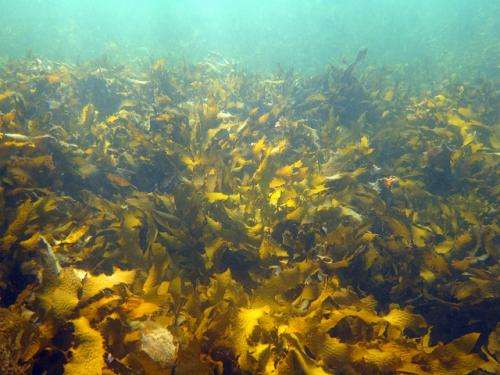Can't see the kelp forest for the... corals? Time to value our temperate reefs

The Western Australia Marine Science Institute (WAMSI) is currently undertaking the terrific initiative of formulating a blueprint of marine research priorities in Western Australia for the next three decades.
But given the vast scale of WA's marine territory how do we prioritise importance and what regions or habitats deserve attention?
In an initial discussion paper preceding the blueprint kelp ecosystems, (temperate reefs) were considered unimportant across the majority of 'value' metrics assessed.
However, is this accurate and what does it mean for the future of temperate marine research in WA?
Western Australians cling to the coast, with over 90 per cent of the population living within 50km of the sea.
This is disproportionately true for the temperate south-west and southern coastline where over 87 per cent of the population reside, of which 75 per cent surround greater Perth.
While there are many reasons for this, it is fair to say that a large proportion of the population do so in-part, because of a sense of connection and identity with the ocean and the lifestyle it offers.
One just has to look at the boat ownership and the popularity of recreational fishing in the state, which have the highest and second highest per-capita rates in Australia, respectively.
Based on these numbers alone, the importance of temperate reefs in WA is apparent, but what often goes unrecognised is that the biodiversity and intrinsic value of temperate reefs are globally unique.
Local marine species considered unique
South West (SW) WA has experienced remarkable isolation and climatic stability over the past 50 million years, which has promoted the evolution and diversification of species not found anywhere else on earth.
This has helped place temperate Australia in the top five most diverse marine regions in the world for a wide range of plant and animal groups.
What's more, due to this remarkable climatic stability, populations living only a few hundred kilometres apart show strong levels of adaptation meaning they cannot tolerate even subtle changes in temperature.
This high degree of climatic specialisation can make these endemic species extremely vulnerable to warming, which is currently taking place along our south west coast, around two times faster than the global average.
South-Western Australia's unique biodiversity is also economically important. The western rock lobster for instance, fished along the SW coast is the most valuable single species fishery in Australia, worth approximately $185 million annually.
Similarly, recreational fishing expenditure, much of which targets endemic species such as the dhufish and baldchin groper is worth an estimated $200 million dollars annually.
Meanwhile, the potential of other aspects of our temperate marine diversity are only beginning to be explored such as the incredible diversity of sponges and seaweeds, which harbour enormous research potential for medical and pharmaceutical industries.
WA's temperate marine environment goes largely unrecognised, undervalued and resultantly underfunded, relative to its enormous intrinsic, economic and social importance.
Only by recognising, celebrating and supporting this submerged natural wonder will we be able to continue to enjoy the lifestyle we currently lead for generations to come.
Provided by Science Network WA



















